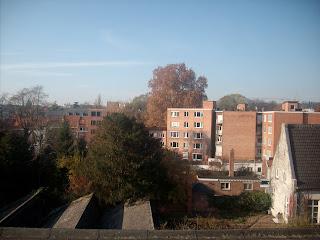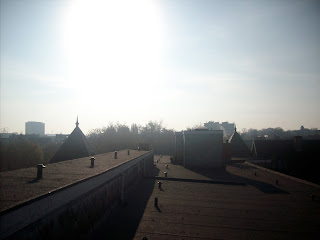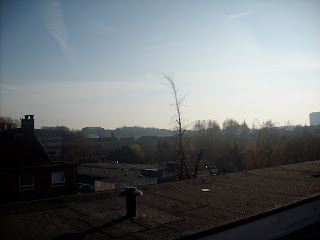So this comes from a poem by W. H. Auden, and it's pretty serious.
O look, look in the mirror,
O look in your distress;
Life remains a blessing
Although you cannot bless.
O stand, stand at the window
As the tears scald and start;
You must love your crooked neighbour
With your crooked heart.
- W. H. Auden, from "As I Walked Out One Evening"
As Auden sees it, we're real bastards, mostly, and to love one another in spite of ourselves is both necessary and miraculous. There is some comfort in the idea that, although loving another person purely may be impossible on this side of the eschaton, it is nonetheless true that "if you do not love, your life will flash by." I suppose that a person's understanding of this idea approaches its resonance frequency in her life when, against all naiveté, she also comes to understand that by choosing to love, she is opting into a tremendously difficult and frequently unpleasant business. Tough crackers for those of us who would rather rid ourselves of all the garbage that goes along with living in our scummy world, and carve out a perfect space in which we may love perfect people perfectly without a shred of selfishness or doubt. Tough crackers for us.
The poem is worth reading in its entirety if you have a couple minutes, which should be sufficient for giving it a visual sweep and a few seconds of reflection. Be warned, it's a very sober delving into the ceaseless march of time, through us and always away from us. In example:
'The glacier knocks in the cupboard,
The desert sighs in the bed,
And the crack in the tea-cup opens
A lane to the land of the dead.'
So, love: a tough business, yeah, and I suppose the situation is made all the more serious by how little time we have. That's all.













